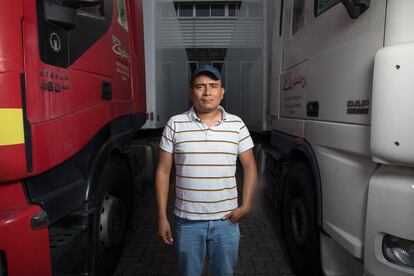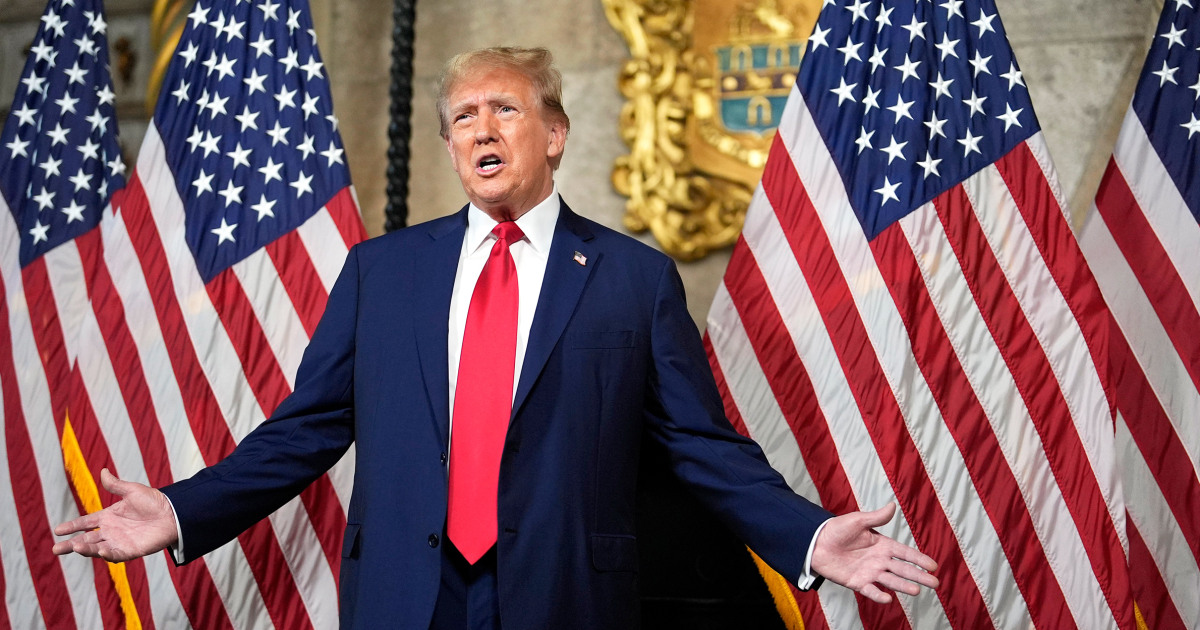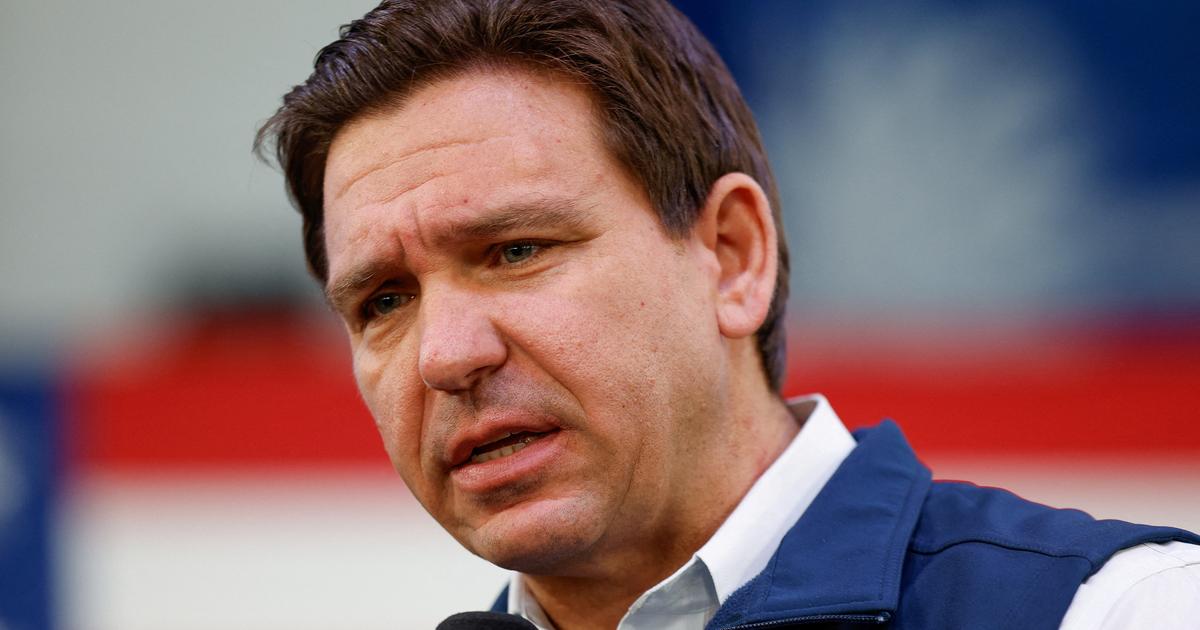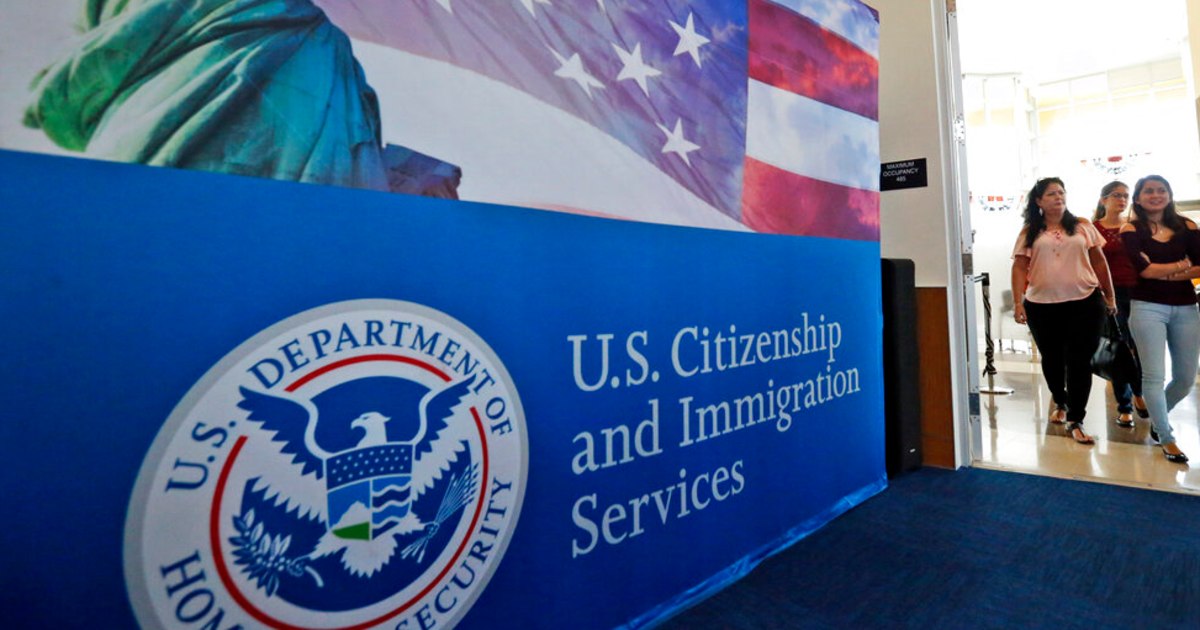In Spain there are more than 5.4 million foreigners: 11.6% of the population.
Among them, there are more than 400,000 who are in an irregular situation, according to a study by the Fundación por Causa and the Carlos III University of Madrid, a figure that is logically difficult to compare.
All together they constitute a huge group of workers, visible and invisible, on which key sectors of the Spanish economy such as agriculture, hospitality or construction are sustained.
They also support much of the health and care.
And from Social Security: they add up to 2.3 million taxpayers, six out of 10 originating from countries outside the European Union.
Without them, Spain simply would not function.
To try to reflect its enormous weight in the country's economy and society, a day without immigrants has been imagined.
4.00
Mercamadrid does not know what to do with the fruit
The vast majority of the men who stack, load, catalog and order the 6,000 tons of fruit and vegetables that are moved daily to Mercamadrid are immigrants.
There is no precise data.
But it is enough to walk around here when this market is a frenetic factory full of cars, vans and pallets to verify it.
Freddy, 23, from Ecuador, is one of them.
He has a work contract, he has been in Spain all his life and he earns 1,500 euros, extra payments included, for stacking fruit from twelve to eight or nine in the morning.
Abdessamad Akka, 21, is another.
He works as a clerk at the Missiwa post, recording everything that comes in, everything that goes out, everything that is collected and everything that is paid.
He also for 1,500 euros a month.
Nearby, the owners of another stand, specialized in exotic fruits, are Ecuadorians.
Jeff Endara, 47,
Arrived in Spain 22 years ago, he started from the bottom, but now he travels to Saudi Arabia to advertise the Murcian peach and get it introduced there.
Endara's example is rare: most immigrants are loaders, stackers, the ones who drive an unstable mountain of watermelons in an automated wagon.
They all have contracts in order.
But, according to some workers, some of the assistants who accompany the greengrocers with a store in Madrid to load the boxes and take them in vans do not have papers.
Between all of them, they make this macro-market work, the true pantry of Madrid.
If one day they did not come to work, the whole of central Spain would be left without fruit.
Endara's example is rare: most immigrants are loaders, stackers, the ones who drive an unstable mountain of watermelons in an automated wagon.
They all have contracts in order.
But, according to some workers, some of the assistants who accompany the greengrocers with a store in Madrid to load the boxes and take them in vans do not have papers.
Between all of them, they make this macro-market work, the true pantry of Madrid.
If one day they did not come to work, the whole of central Spain would be left without fruit.
Endara's example is rare: most immigrants are loaders, stackers, the ones who drive an unstable mountain of watermelons in an automated wagon.
They all have contracts in order.
But, according to some workers, some of the assistants who accompany the greengrocers with a store in Madrid to load the boxes and take them in vans do not have papers.
Between all of them, they make this macro-market work, the true pantry of Madrid.
If one day they did not come to work, the whole of central Spain would be left without fruit.
Some of the assistants who accompany the greengrocers with a store in Madrid to load the boxes and take them in vans do not have papers.
Between all of them, they make this macro-market work, the true pantry of Madrid.
If one day they did not come to work, the whole of central Spain would be left without fruit.
Some of the assistants who accompany the greengrocers with a store in Madrid to load the boxes and take them in vans do not have papers.
Between all of them, they make this macro-market work, the true pantry of Madrid.
If one day they did not come to work, the whole of central Spain would be left without fruit.
Dominicans Argeny and Alexandre Michael are two brothers who work as waiters at a fruit stand in MercaMadrid.
Victor Sainz
Jose Antonio Mancilla is a Peruvian truck driver.
He transports merchandise to Mercamadrid, the largest fresh food logistics platform in Spain.
Victor Sainz
A Mercamadrid worker transports a pallet to one of the complex's warehouses.
Victor Sainz
Abdessamad Akka is Moroccan and works at a fruit stand in Mercamadrid.Victor Sainz
Ecuadorians Alexandra Pisuña and Jeff Endrara own a fruit stand in Mercamadrid.
Victor Sainz
9.00
Barcelona without taxis
On that hypothetical day without immigrants, Barcelona would wake up almost without taxis.
So says Mirza Salman, the Pakistani consul in the city.
Currently, there are around 50,000 Pakistanis registered in Catalonia.
In addition, there are 80,000 without papers.
Marc Serra, Councilor for Citizen Rights at the Barcelona City Council, adds: “There would also be no bars or restaurants.
And everything would be dirtier, because for the cleaning of Barcelona, inside and outside the public thoroughfare, migrants are usually hired.
11.00
construction stops
In some communities such as Navarra, a third of the workers dedicated to construction are foreigners.
In Madrid they reach 16%.
In our day without immigrants, the sector would collapse from north to south.
From the largest civil works that are currently being carried out in the capital, the construction of the Doce de Octubre hospital, to the blocks of flats in suburban neighborhoods or small interior or store reforms.
The sector is once again thriving, but there is a lack of workers.
The Report on the state of the workforce, carried out by the National Construction Confederation (CNC) among almost half a thousand associated companies, presented in April 2022, confirms that it is difficult to find construction managers, foremen, masons, formworkers , carpenters, installers of technical facades, or crane and forklift operators,
Outside the statistics is Pascal Titgoum, a 35-year-old from Cameroon, who still has the marks on his fingers left by the concertinas of the Melilla fence when he jumped it in 2014. He has never had papers.
He has taken courses in cooking, gardening (“it's what I do best”) and butchery.
But where he has worked the most, always clandestinely, is in construction.
There was a time when he went to the Plaza Elíptica, in Madrid, where the foremen were looking for hands to weld, tile or pave works all over Madrid.
It is a kind of Persian market where the immigrant in an irregular situation is offered almost anything and charges less.
If he charges
“They paid me 30 euros a day, they picked me up at 8:00 and released me at 7:00 p.m. ″, he explains.
“But I already worked with three people who didn't pay me.
I haven't been there for a long time,
13.00
The town without children
In Chalamera, a Huesca town of 100 inhabitants, Santiago Villas, 29, the mayor (PSOE) launched a shock plan to save the school (and with it the town).
The 2020-2021 school year ended with only one student, a Moroccan boy.
Either children arrived, or Chalamera's future darkened.
Villas ended up attracting two families, one Romanian and one Moroccan, who brought five new children to the town.
Immigrants, 30% of the population, not only breathe life into the school.
The town's pool, the soul of summers in the interior, will be run by a Colombian.
Those of the nearby towns, all surrounded by peach or cherry trees, are also in the hands of foreigners.
Óscar Moret, farmer and mayor of Almudafar, a 55-year-old district of the Valle del Bajo Cinca:
13.00
Carlos is still in bed: there is no one to pick him up
At a quarter to eight in the morning, Delmi Galeano, from El Salvador, 42 years old, enters like a whirlwind into the apartment of Carlos Urquía and Paz Sevilla, 65 and 63 years old, respectively, a middle-class couple from Madrid.
Delmi puts on a girdle so as not to damage her spine with the weight, makes coffee, talks, tells, jokes and gets ready.
Then, between the two women, they lift Carlos, a quadriplegic for months, out of bed and take him to the bathroom.
Then they wash and dress him.
Without wasting time, without stopping for a minute, because at 10 they have to be in the car to get to the rehabilitation clinic on time, Delmi puts Carlos' chair in the adapted car, then she gets in and drives down the M-30.
She keeps joking so that Carlos doesn't fall asleep.
She earns minimum wage.
1,000 euros.
She comes in at eight and leaves at three in the afternoon.
Delmi Galeano comes from El Salvador.
He has been in Spain for 10 years.
She works as a maid at Paz and Carlos' house in Madrid.
Samuel Sanchez
Delmi takes Carlos to the Spinal Cord Injury Rehabilitation Foundation.
Samuel Sanchez
Delmi helps Carlos into the van.
Samuel Sanchez
Among the functions of Delmi is to make the purchase in the supermarket.
Samuel Sanchez
Delmi helps Carlos to do rehabilitation exercises at home.Samuel Sánchez
Delmi and Carlos, in the kitchen of the house.
Samuel Sanchez
Paz, Carlos and Delmi chat in the kitchen.
Samuel Sanchez
They arrive at the clinic on time.
There, while a physiotherapist attends to Carlos, Delmi has an hour and a half free.
Sometimes he takes a nap in the car, sometimes he takes the opportunity to buy Paz something or run an errand.
He sometimes draws beautiful Indian princesses in a notebook.
Sometimes he sits down to have a coffee and think about his children (20 and 15 years old), whom he left in Salvador in 2012, whom he has not seen grow up and with whom he does not know if he will ever live again. time.
You want to cry if he calculates what he left and what he got, if he balances profits and losses.
Her family has prospered, thanks to the salary she sends each month.
But she gave up her law job forever to start cleaning and taking care of people.
"Life, if you let it, laughs at you," she says.
But there is no time for much melancholy, because you have to pick up Carlos, put him in the chair, put him in the car, drive him home, talk to him, help him with rehabilitation or, sometimes, just try not to let him fall apart.
She, who was crying a while ago.
The two, the quadriplegic and the immigrant, understand each other, often without speaking, because they both know what it is to lose.
Paz, the woman, sees them return, sits in the kitchen and answers the question of the report: “If there were no immigrants?
I don't know.
I know that if Delmi did not come, Spain would not stop, but my husband would simply die.
After five days he would have to stay in bed because I couldn't get him up on my own.
And he would die in a few months, because I couldn't prevent the disease from taking its toll on him.
It's that simple."
put him in the chair, put him in the car, drive him home, talk to him, help him with rehab, or sometimes just try to keep him from falling apart.
She, who was crying a while ago.
The two, the quadriplegic and the immigrant, understand each other, often without speaking, because they both know what it is to lose.
Paz, the woman, sees them return, sits in the kitchen and answers the question of the report: “If there were no immigrants?
I don't know.
I know that if Delmi did not come, Spain would not stop, but my husband would simply die.
After five days he would have to stay in bed because I couldn't get him up on my own.
And he would die in a few months, because I couldn't prevent the disease from taking its toll on him.
It's that simple."
put him in the chair, put him in the car, drive him home, talk to him, help him with rehab, or sometimes just try to keep him from falling apart.
She, who was crying a while ago.
The two, the quadriplegic and the immigrant, understand each other, often without speaking, because they both know what it is to lose.
Paz, the woman, sees them return, sits in the kitchen and answers the question of the report: “If there were no immigrants?
I don't know.
I know that if Delmi did not come, Spain would not stop, but my husband would simply die.
After five days he would have to stay in bed because I couldn't get him up on my own.
And he would die in a few months, because I couldn't prevent the disease from taking its toll on him.
It's that simple."
just try not to let it fall apart.
She, who was crying a while ago.
The two, the quadriplegic and the immigrant, understand each other, often without speaking, because they both know what it is to lose.
Paz, the woman, sees them return, sits in the kitchen and answers the question of the report: “If there were no immigrants?
I don't know.
I know that if Delmi did not come, Spain would not stop, but my husband would simply die.
After five days he would have to stay in bed because I couldn't get him up on my own.
And he would die in a few months, because I couldn't prevent the disease from taking its toll on him.
It's that simple."
just try not to let it fall apart.
She, who was crying a while ago.
The two, the quadriplegic and the immigrant, understand each other, often without speaking, because they both know what it is to lose.
Paz, the woman, sees them return, sits in the kitchen and answers the question of the report: “If there were no immigrants?
I don't know.
I know that if Delmi did not come, Spain would not stop, but my husband would simply die.
After five days he would have to stay in bed because I couldn't get him up on my own.
And he would die in a few months, because I couldn't prevent the disease from taking its toll on him.
It's that simple."
sits in the kitchen and answers the question of the report: “If there were no immigrants?
I don't know.
I know that if Delmi did not come, Spain would not stop, but my husband would simply die.
After five days he would have to stay in bed because I couldn't get him up on my own.
And he would die in a few months, because I couldn't prevent the disease from taking its toll on him.
It's that simple."
sits in the kitchen and answers the question of the report: “If there were no immigrants?
I don't know.
I know that if Delmi did not come, Spain would not stop, but my husband would simply die.
After five days he would have to stay in bed because I couldn't get him up on my own.
And he would die in a few months, because I couldn't prevent the disease from taking its toll on him.
It's that simple."
The care sector is the most dependent on foreigners.
Within the special home systems, they represent 43.52% of the workers.
164,848 people, most of them women taking care of dependents, children and cleaning tasks.
This number does not include women workers in an irregular situation who find in the privacy of their homes a job for hours or as interns, sometimes precarious and abusive.
14.00
Nobody eats in Tuscany
The search for foreigners is a kind of gymkhana in Benidorm and employers raffle anyone who wants to work.
In the Valencian Community, the hotel industry concentrates the highest percentage of foreigners, 16.37%.
It also happens in Asturias, Cantabria, Castilla y León or Galicia.
In the Canary Islands it reaches 40%.
In the La Toscana pizzeria, very close to the Levante beach, Israel Blasco, the 48-year-old owner, imagines what would happen if the immigrants went on strike.
The establishment starts at 10 in the morning.
Ana and Judith, the kitchen assistants, are from the Ukraine and Colombia, respectively.
Mohamed, Ali and Kambra, the Pakistanis are the cooks.
Without them, the pasta and pizza dough would be left undone.
Nor will the oxtail sauce be on the menu, nor will any of the other specialties.
“The preparation of our dishes is 99% homemade, so I could not open.
This is a ship and everyone is necessary”.
And he adds: “A week ago we put an ad for another restaurant that we have.
I put it at 12:00 and by 16:00 I had over 35 responses.
All of immigrants without papers.
At 17.
Said Boushabati, of Moroccan origin and naturalized Spanish, is a manager at a brasserie in Benidorm.
JOAQUIN DE HARO RODRIGUEZ
Raúl Darvas is Romanian and works at the Pinocchio ice cream parlor in Benidorm.
He has been in Spain since 2003 and has a monthly salary of 1,200 euros.
JOAQUIN DE HARO RODRIGUEZ
Verónica Urdaneta is Venezuelan and works in the kitchen of the Taberna Andaluza.
She has been in Spain since 2018. She has a monthly salary of 1,300 euros.JOAQUIN DE HARO RODRIGUEZ
16.00
The waiting room of the health center is a chaos
Up to 70 patients can pass through the Navalmoral de la Mata health center in Cáceres in one morning, but today there are no doctors.
The waiting room is chaos.
The coordinator of the center, the Venezuelan doctor José Alejandro Pinto did not come to work.
Neither do four other compatriots, nor the Bolivian doctor nor the two Argentine doctors who consult at that health center.
"It's not just here, in all the surrounding towns there would be no care without foreign doctors," Pinto maintains.
The doctor regrets the "progressive deterioration" of the service due to the lack of professionals.
"Services have collapsed due to the precariousness of hiring, salaries here are not that attractive and the Spanish have not accepted them."
18.00
The field is empty
The percentage of immigrants working in the field reaches 23%.
In some regions, this figure is even higher.
One of these places is El Ejido and its surroundings, marked by the plastic horizons of the greenhouses.
70% of those who work there are foreigners, the majority from Morocco, Romania and Senegal, according to data from the Argos Observatory of the Andalusian Employment Service.
That is to say: the greenhouses, on a hypothetical day without immigrants, would remain almost empty.
María Luisa González, Secretary of Immigration of the Workers' Commissions, affirms that the greenhouses employ between 25,000 and 30,000 people in an irregular administrative situation.
"They are an essential pillar, but they are not valued in that way," says González,
800 kilometers to the north, Daura Sanagares, a 42-year-old Malian, is in charge of his compatriots picking the nectarine from the trees lined up in Zaidín (Huesca).
Sanagares has spent half his life in Spain and likes the countryside, although he aspires to return: settle in the Ivory Coast, where he was born, buy a tractor and set up a farm.
He doesn't dare calculate when that will be.
The foreman arrived in Fuerteventura in a small boat in 2003. He was lucky, because less than two years later Zapatero's socialist government promoted a massive regularization to which almost 700,000 people aspired and got his papers.
Now, 19 years later, he is waiting for his Spanish passport.
In the public school Cra Albeos de Belver, in Cinca (Huesca) the percentage of students of foreign origin exceeds 40 percent. Massimiliano Minocri
A worker of African origin drinks water during a break in the nectarine harvest. Massimiliano Minocri
A sixth grade classroom during a French class at the Cra Albeos public school in Belver.
Massimiliano Minocri
In the Torre Molins company, Huesca, more than 90 percent of the workforce is foreign.
In the image Namory Keita, from Mali, in the nectarine field.
Massimiliano Minocri
A sixth grade classroom during a French class at Cra Albeos de Belver public school.
Massimiliano Minocri
A second grade classroom at the Cra Albeos de Belver school, in Cinca, Huesca. Massimiliano Minocri
Aboubacar, from the Ivory Coast, at the Torre Molins estate dedicated to nectarines.
Massimiliano Minocri
Students of the Cra Albeos public school in Belver de Cinca (Huesca) in the school canteen.
Massimiliano Minocri
Torre Molins workers leave the nectarine field.
Massimiliano Minocri
22.00
The boats, moored.
there are no fishermen
A third of the sailors in the province of Lugo come from outside of Spain.
"So if we had to imagine the photo of our ports if one day the foreigners were missing, we would see a large part of the fleet moored due to lack of personnel, especially the high-altitude one," describes Sergio López, manager of the Organization of Fisheries Producers Burela, the largest port in the province.
The skippers and chief engineers are still Spanish.
“But in a fishing boat with 15 or 13 men, more than 10 can be from outside.
In the past, Cape Verdeans and today, above all, Indonesians”, adds López.
The Galicians chose to stay on land, working in the industry, and the Cape Verdeans replaced them in the fishing grounds of the Gran Sol in ships from Lugo.
They brought their families and their native Portuguese helped them settle down.
Today your children
they have preferred to follow other labor paths, in imitation of the Spanish.
So the fishermen, for the most part, are no longer Cape Verdeans.
They have been replaced by the Indonesians.
The crew of the 'Nosa Madre Rosaura' is made up of fishermen from Indonesia, Cape Verde and Senegal.
The ship's skipper, Elvis Jesús da Silva, poses next to the ship and its crew.ÓSCAR CORRAL
The boat's skipper, Elvis Jesús da Silva, poses next to his boat, the 'Nosa Madre Rosaura'.
OSCAR CORRAL
The 'Nosa Madre Rosaura' is dedicated to catching hake in the North Sea.ÓSCAR CORRAL
Karim, from Senegal, got the papers to work after three years in Spain.ÓSCAR CORRAL
After a few days on the high seas, the workers of the 'Nosa Madre Rosaura' have to prepare the ship for the next departure.
OSCAR CORRAL
The sailors of 'Nosa Madre Rosaura' load food for their next campaign.
OSCAR CORRAL
Two of the crew members of the 'Nosa Madre Rosaura' work in provisioning tasks for the next campaign.
OSCAR CORRAL
3.00
Return to Mercamadrid
Some of the fish caught by Indonesian fishermen based in Lugo may end up at a Mercamadrid stall run by a peculiar character: Leonardo Valencia, 42, of Ecuadorian origin.
It is not normal for a position of these characteristics to end up in the hands of an immigrant, but Leonardo is not just any guy: he arrived 22 years ago, with nothing, and, due to his past as a fisherman, he entered the sector.
He did everything in Mercamadrid.
For months he slept on a stairwell landing because, without a car, the last bus left him three hours before the night shift began.
He now employs 20 immigrants out of his 25 workers.
He gets up at half past one in the morning and doesn't come home until four in the afternoon.
His stall is called
Laukay
, which in Quechua means work.
With information from
Alfonso Congostrina
,
Nacho Sánchez
,
Silvia Pontevedra
and
Guillermo Vega
.
50% off
Subscribe to continue reading
read without limits
Keep reading
I'm already a subscriber







/cloudfront-eu-central-1.images.arcpublishing.com/prisa/N32QBNMEAGJFI4NXT32PTC3GUY.jpg)



/cloudfront-eu-central-1.images.arcpublishing.com/prisa/KMEYMJKESBAZBE4MRBAM4TGHIQ.jpg)


/cloudfront-eu-central-1.images.arcpublishing.com/prisa/EXJQILQR5QI7OMVRTERD7AEZAU.jpg)
